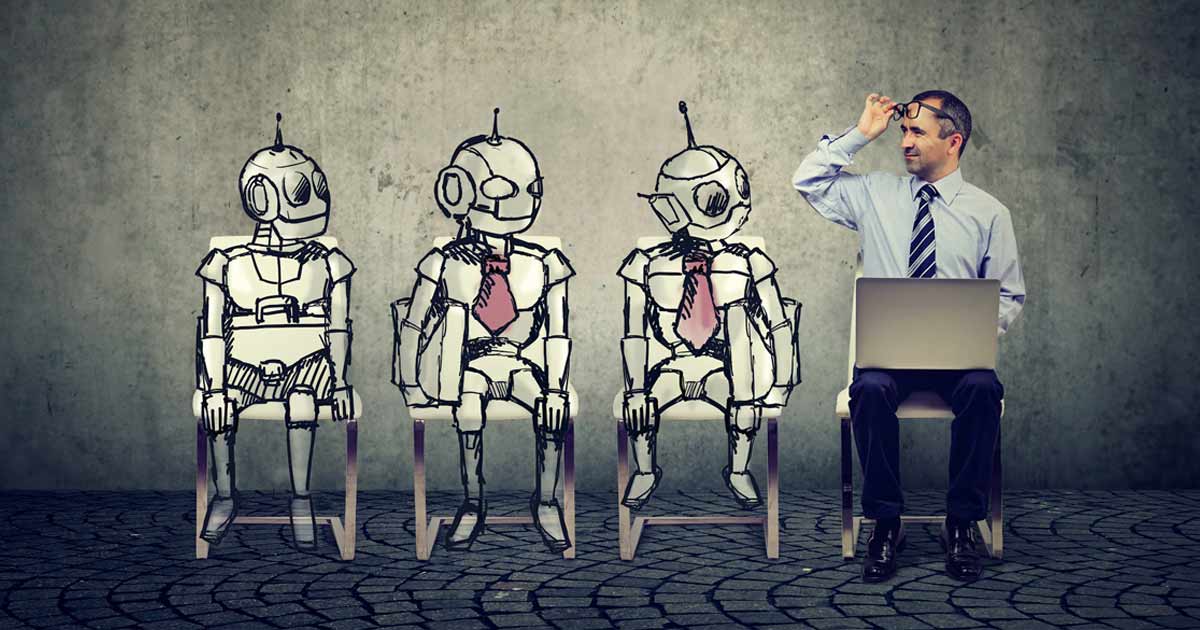The micro-blogging web page Mastodon has found explosive progress in the earlier handful of weeks, as Twitter end users in the hundreds of hundreds have flocked to it in the #twittermigration. Because Elon Musk took around Twitter, Mastodon has grown by hundreds of thousands of new users, and currently has in excess of one particular million buyers who have been active in the earlier 7 days. This past level is essential. The electric power of a social community is not how lots of men and women are members, but how lots of are active.
Can this upstart social media platform seriously be successful and create itself as a good alternative to Twitter?
What is Mastodon?
Mastodon is a micro-blogging platform, identical to Twitter in some respects – and vastly distinct in many others. It was established in 2016 by now 29-calendar year-outdated German programmer, Eugen Rochko.
As on Twitter, end users put up brief comments or messages. Mastodon has a 500-character limit as opposed to the 280 characters doable on Twitter. These messages can be accompanied by back links, images and films. Customers can abide by individuals that they are interested in, and in some cases, send out personal messages (though this is claimed to be unencrypted and accessible to the admins of the server the recipient is on do not believe in a DM to often be non-public).
The major big difference is that Twitter is owned and managed by an erratic billionaire. Mastodon has no owner. It’s a dispersed group of independent servers sharing open-supply code. That shared code inbound links them with each other in a federated design that a lot of refer to as the “Fediverse.” The central overall body, if there is just one, is a not-for-income called Mastodon, but as Rochko has pointed out, even if someone ended up to buy or acquire command of that not-for-income, it would not be in a position to control the federation of communities nor the program which is irrevocably open sourced.
The protocol that links these servers is called ActivityPub. It permits any person to use this open-resource software package and boot up a server that hosts a Twitter-model local community. Every local community has its individual procedures but is linked by a prevalent set of principles printed by Mastodon.
These interlinked communities communicate with the complete “Fediverse.” You can see the stream from the overall federation. You can read, like, or even raise a information from everyone on any affiliated server, although these conditions have a a little bit different this means than on Twitter (see under).
You can modify your see to just converse with those people in your personal neighborhood, or see the complete environment. Similarly, you can block articles from any server in the Fediverse.
Other variations – refined but most likely powerful
Past the absence of a billionaire dictator and a little for a longer time messages, there are a selection of more delicate differences which have a huge effects and make a Mastodon dialogue various than a Twitter stream.
Getting arranged in conditions of owning unique communities has some good advantages. It enables for groupings of people today based mostly on related interests. These range from groups of gurus – journalists are between the pioneers of this – to teams with different social pursuits. For illustration, there is a person team just for men and women with disabilities. The choices are infinite.
Every team has its very own moderators and its own guidelines of conduct. Regional moderation, and the capability to block other servers, eradicates the have to have for the substantial “top-down” technological initiatives at moderation which have largely failed on Twitter and Fb.
Another subtlety is the way that favourites work. You can set a star on someone’s publish. A star just tells the writer that you appreciated their publish. You can improve a article so that it will appear to your mates. But there is no algorithm to feed articles to you based mostly on likes or dislikes.
Persons actively handle or filter the data they get centered on the nearby server, who they abide by, or by selecting subject areas as a result of hashtag queries.
Algorithms them selves are not insidious, but they do invisibly influence what you see. They are potentially subject matter to manipulation. For explanations very well documented, algorithms favour the sensational, and on Twitter have aided the promotion of extremist thoughts. This is a lot more difficult to do on Mastodon – if it’s even probable.
Like the early times of the online, the Fediverse is devoid of marketing, but it is achievable for folks to market solutions or products and services. I noticed a person put up about a heal for thinning hair, and I’m positive there will be more. But there is no promotion equipment like on Facebook or Twitter. Without the need of the likes and algorithms to push advertising, it could be difficult to run advertising and marketing in the unlikely occasion it takes root. At least for now, it is not essential to fund Mastodon with paid marketing, and unique communities will likely react negatively to it.
Mastodon may obtain the holy grail of social media – paid out for by the associates them selves with out exchanging their own data for no cost services. That, and the skill to attain portability and let customers to very own their information and perhaps go it amongst server communities, fixes two of the major flaws in existing social media architectures.
Why Mastodon may triumph and how
Most people today are common with Moore’s regulation. It predicts a continuing and exponential maximize in the electric power of technological know-how with a corresponding lessen in expense. That regulation has allowed engineering to infiltrate just about every element of our life. What as soon as took a multi-million-dollar mainframe to method is now done on a pc or telephone costing hundreds of bucks.
Social media depended on the ubiquity of technological innovation, but it is pushed by a next legislation called Metcalfe’s law. Metcalf’s regulation states that the larger sized the quantity of “nodes” (go through people) in any network, the far more precious it is. Simply just stated, when a team or community reaches a essential dimensions, you can complain about it as we do with Twitter and Fb, but you never want to depart them mainly because which is in which everyone is. Writer Don Tapscott as soon as called this the “Hotel California” syndrome. “You can verify out any time you want, but you can in no way depart.”
That is why it is tricky to unseat a social community as soon as it hits this tremendous-essential mass. Take note that it is hard, but it is not impossible. Few will keep in mind, but there was the moment a popular social network named Myspace. In 2006, Myspace signed up about 90 million associates, surpassing Google and Yahoo as the most visited web site in the U.S. A buggy interface, interior fights and dissatisfied users and lawsuits remaining it vulnerable to a new upstart – Facebook.
It takes a large adverse occasion or sequence of situations to unseat a social large. Even Facebook’s multiple privacy scandals have not carried out a great deal to impede its advancement.
Musk’s takeover of Twitter and his erratic and to some, deeply offensive, behaviour could really effectively be the epic miscalculation that results in an possibility for a critical competitor to emerge. Mastodon may possibly be that viable choice.
Success is not guaranteed by any stretch. There are a variety of competing social web sites that have tried out to unseat Twitter and Facebook but have failed miserably. The most modern, Truth Social, has been mired in fiscal and lawful challenges, and even with the cult-like behaviour of Trump followers. So much, even with the reduction of Donald Trump’s account, Truth of the matter Social has not designed any substantial influence on Twitter.
In fact, Musk’s reinstatement of Trump’s account would potentially devastate Truth of the matter Social, whilst Trump statements he will not resume posting on Twitter and demolish his fledgling social media enterprise. But reinstating Trump may possibly destruction Twitter with out Trump in fact posting something. The mass exodus of Twitter buyers that commenced when Elon Musk took about received an included raise when it was introduced Trump’s account was reactivated.
So why would Mastodon do well when other individuals unsuccessful? We don’t forget that Jimmy Wales, just one of the founders of Wikipedia, tried to get started a new social community as an different to Fb and Twitter. The eyesight was a member-driven web page without advertising and marketing. Wales managed to catch the attention of 400,000 buyers in the very first year of procedure (1999) but by 2022, the website experienced grown only somewhat, to 508,000 customers.
Mastodon has surpassed these quantities in a matter of days.
Mastodon has level of competition. Twitter founder Jack Dorsey’s Bluesky Social is presently accepting beta users. Dorsey, with his understanding of Twitter and status could be a formidable competitor. But initially-mover advantage, and the amount of publicity that Mastodon has obtained, may possibly make it tough for Dorsey or any of the other competition to retain up – or scale up fast more than enough.
As in so a great deal that occurs in enterprise, the luck of being in the appropriate area at the correct time plays a vital job in success. Mastodon was established in 2016, so when the possibility arose, it was operational at the suitable point in time.
Additional, Mastodon’s not-for-income federated, or if you desire, franchise product has the potential to scale considerably more quickly than a centralized process. It will have difficulties along the way, but now it can quickly increase potential and attract not just customers but volunteers. We will need only assume again to how Wikipedia decimated not just the encyclopedia market, but also beat a significantly greater-funded energy from software program large Microsoft. A decentralized and committed volunteer military is a tough point to beat.
This final issue – the motivation of the volunteer army – simply cannot be discounted. When Twitter has, at last rely, about 217 million daily customers, the large vast majority of the website traffic comes from much less than 10 for each cent of the end users, referred to as “heavy tweeters.” This team, according to a modern Reuter’s write-up, also generates the broad the vast majority of Twitter’s income.
That exact same Reuters submit notes the reduce in some types of that information. The “heavy posters” do not lead as much to the moment commonplace and common topics these as sports. Conversely, there has been an enhance in “not suit for work” written content, together with nudity, adult content, conspiracy theories, and hate speech.
Musk’s pledge to weaken moderation and slice the employees focused to moderation can only go away us to think that the sum of offensive material on Twitter will develop. This appears to be feeding the abandonment of Twitter. More, it may perhaps make employers nervous about allowing for accessibility to Twitter.
In addition, major advertisers these types of as Basic Motors, Pfizer, Mondalez, REI, General Mills, United Airlines, Audi, IPG, and Carlsberg have pulled their advertising. Luxury brand names together with Möet, Hennessey, and Louis Vuitton have reportedly stated that they will pull their promotion from Twitter if Musk reinstates Donald Trump’s Twitter account, which Musk did a several times back.
It’s a excellent storm of poor information for Twitter.
Although Twitter is starving for revenue, Mastodon is flush, in part due to the fact it is surprisingly modest in its demands. Donations to the not-for-earnings that runs Mastodon had been 55,000 Euros previous yr. Mastodon in fact put in 23,000 Euros. Contrast that with the US$44 billion that Musk spent on Twitter, which has yet to make a earnings.
Media Savvy Mastodon – give the “bird” “the bird”
Mastodon’s volunteer army is exceptionally media savvy. The new membership fuelled by the initial exodus from Twitter is seriously weighted with proficient creators and influencers of social media articles. A variety of major journalists have moved and established various new communities. There is a escalating listing circulating that showcased 1,000 perfectly-acknowledged journalists. A lot more are added every day.
For case in point, there is Adam Davidson, founder of the Mastodon neighborhood journa.host Amongst his a lot of credits, Davidson has published for the New York Instances and the New Yorker. He said in a the latest influential United kingdom site:
“Even if Mastodon have been to continue to be Twitter’s incredibly small stepbrother, I would nevertheless like to be aspect of a Mastodon journalist community simply because I think we obtained lazy as a area, and we permit Mark Zuckerberg, Jack Dorsey, and, god assist us, Elon Musk and their staff members decide all these important journalistic issues.”
Journalists and trusted information might not be what we consider of as the main of Twitter, but they are important to its achievements. The huge accounts get huge observe, but on a working day-to-working day basis, close to the world, Twitter is, or was in the times of the blue checkmark, the way in which several persons found their trustworthy news resources. If journalists make the leap everlasting, Twitter will lose an massive amount of its true price.
Lecturers and some others who have designed reputations are Twitter are also voicing the thought of shifting. A main exploration-oriented blog site, LSE Effects, had an short article, “Requiem for a Tweet” with the haunting estimate:
“What’s the worth of acquiring hundreds of followers if they not often log in to Twitter?”
In addition to these two teams of large-profile users, there are several other people today who are professionals in the social media environment and how to influence it.
With the irreverence and creativeness so significantly a element of social media, new memes are fueling the wave. Twitter is referred to as “the chicken,” with an inescapable parallel to the phrase “flipping the chicken.”
These memes effectively faucet into not just new disappointment with Twitter, but the perception of resentment that has crafted in social media over the several years. For example there is this article from Mastodon person @TheGibson from a neighborhood referred to as hackers.town
My information is not yours to individual.
You came right here and requested to market us things, then tracked us with the matters you bought us.
You came right here and begged for trust, which several gave you, then betrayed it by offering our secrets and techniques.
Then you took away our nation.
My knowledge is not yours to possess.
There are also humorous visible memes that faucet into our collective memory:

Make no error. Success is not certain for Mastodon. It will facial area troubles and crises. It is surviving immediate expansion but it has scarcely crossed 1 million consumers. How it will cope with 10 or 20 moments that volume is uncertain. Regardless of whether the federated model can thrive is still an open dilemma. Cooperation on the level of a Wikipedia or equivalent open up-resource thought message boards can work, but it requires a continuing stream of dedicated volunteers to sustain it. Can the volunteer army continue to mature and travel progress?
We all like a David and Goliath story. But the dimension differential – 1 million vs 270 million – is formidable. Musk is his very own worst enemy, he carries on to alienate, but he is nonetheless the richest person in the planet and a formidable foe.
On the other hand, for people who feel that they have shed before fights, this could be found as a previous probability. They viewed as the utopian vision of the environment large website and then social media moved from democratization to corporate dominance. Offered that, this ragtag band and their rebel are enormously determined to discover a fairy tale ending in their edition of the evil emperor and his death star.








